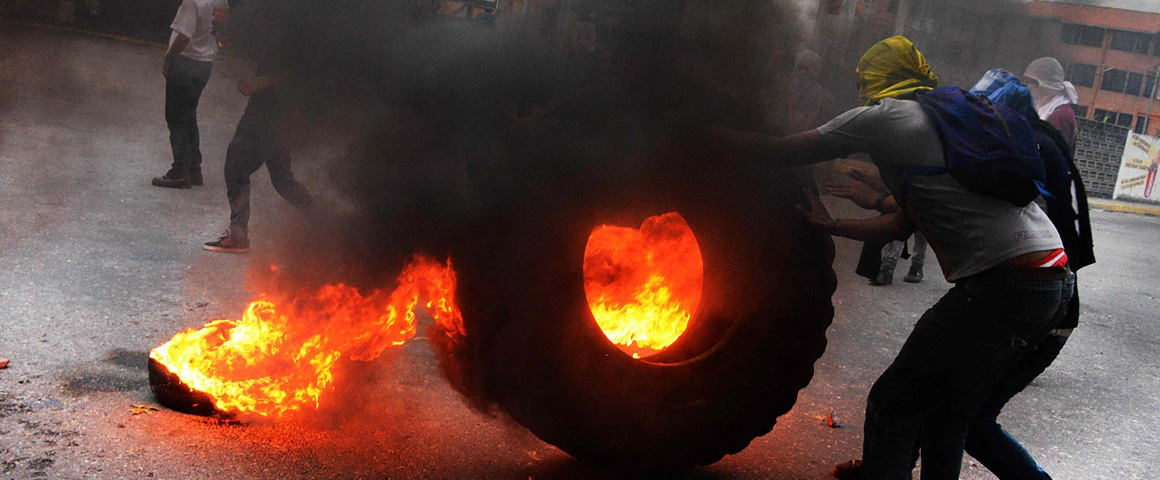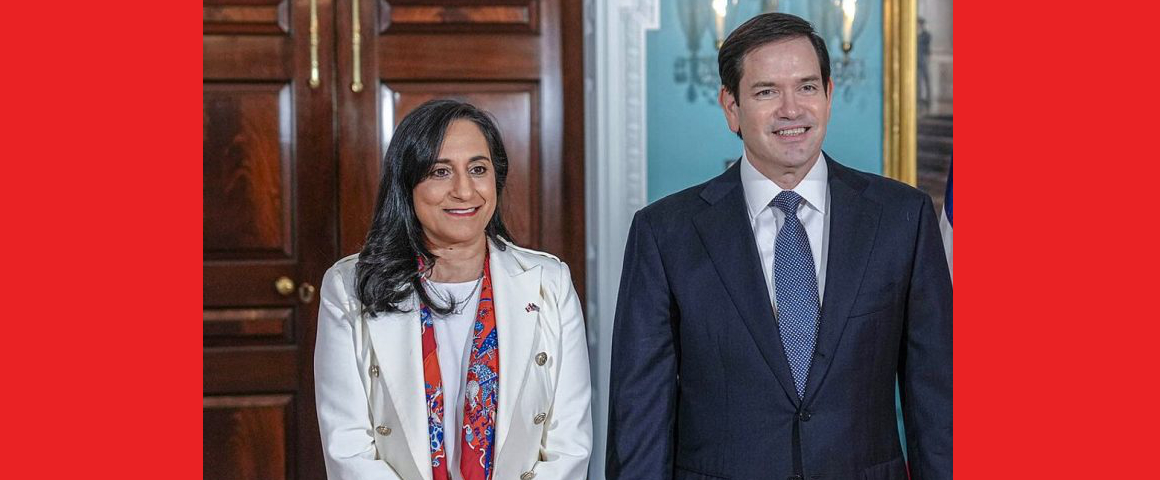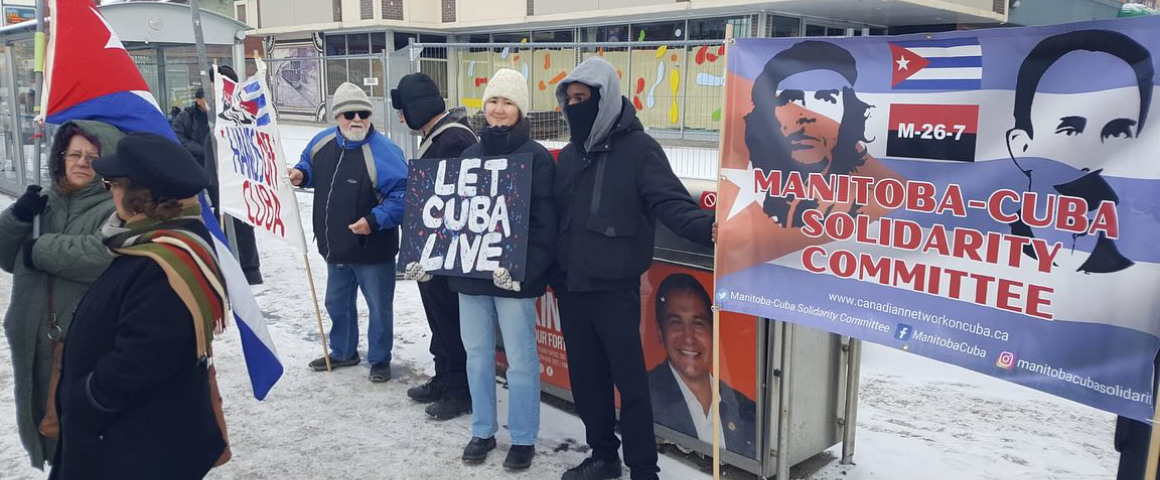Every time the Venezuelan “opposition” decides to make the government responsible for the disorder they cause, they invariably invoke the “constitutional order” being broken. The mainstream media obliges and repeats the same thing. Or the MSM says it first and the “opposition” obliges with more violent disorder.
The Canadian government, and more loudly the Conservative opposition in Parliament, is doing exactly the same. They follow the incitement of an ad hoc anti-Chavista “Venezuelan lobby” in Canada that naturally feeds MPs with false and biased information.
They invariably claim that the Venezuelan government breaks the constitution. But with some exceptions that the Maduro government has quickly rectified, [1] the Venezuelan constitution has been followed to the letter. Chavistas will never break what they consider one of Chavez’ most important legacies. They will respect it to the end. There will be room for improvement but the essence will remain.
The “opposition” started with a (failed) coup in 2002 – nothing constitutional about that. In fact, when the whole Bolivarian building was struck down immediately by the “golpistas”, we never heard cries of a broken constitutional order. In fact, the Venezuelan people (not the right-wing) actually took on the task of restoring the constitutional order by reinstating Chavez as the legitimate president.
Even when the far right opposition Democratic Unity Roundtable (MUD, in Spanish) gained a majority in the National Assembly in the 2015 elections, they did not stop there. They attempted to swear in three candidates who had committed electoral fraud, forcing a constitutional breakdown by doing so.
There have been other acts of violence in 2004 and 2014 by right-wing protesters in Venezuela, but none as violent as the current one. It is not a coincidence that it follows the release of the infamous report by Luis Almagro of the OAS, and the instigator the United States, calling for the application of the Inter-American Democratic Charter against Venezuela.
The National Assembly controlled by the MUD coalition immediately accepted Almagro’s report, saying that “the Inter-American Democratic Charter carried more legal weight than Venezuela’s 1999 Bolivarian Constitution, and called for the legislation to be applied against Venezuela due to an alleged “breakdown of the democratic order”.” [2]
This blatant call for foreign intervention encouraged social disorder in Venezuela and endorsed the violent behaviour of the “opposition”.
Recently, at an international meeting with intellectuals in Caracas, President Maduro stated: “In 18 years Venezuela has had 20 elections and none have been recognized by the right-wing and imperialism… they [the protesters] have no interest in elections.” [3]
Every action of violence by the “opposition” is not a “peaceful protest”; it is a threat to the constitutional order that forces the government to a strong reaction to quell the violence. Those actions are directly responsible for the death of more than 40 Venezuelans, protesters as well as government supporters, including soldiers of the Bolivarian National Police.
Many protesters were imprisoned for breaking the law and some are expected to appear in a military court. The reaction has been immediate: why are civilians being prosecuted in a military court, implying yet another unconstitutional action by the government.
In fact, the reality is totally within the Venezuelan constitution. Specifically, Article 261, which explains that the scope of jurisdiction, organization and modalities of operation of the military criminal jurisdiction, is governed by the justice system and in accordance with the provisions of the Organic Code of Military Justice.
The Constitution of Venezuela establishes that if a civilian commits a military crime, such as aggression against military personnel or property, he/she can be submitted to military jurisdiction and not to an ordinary court. There are provisions for the accused to appeal a military prosecution. [4] Some appeals have already been won by the accused.
That is the constitutional order, like it or not. It is no one else’s business outside Venezuelans to question that. The OAS, the US and Canadian governments should stay out of it, especially when they are not properly informed or are misinformed. Otherwise it constitutes a dangerous interference into the internal affairs of Venezuela.
In an open letter, the Communist Party of Venezuela warns, “These acts have been accompanied by a national and international propaganda war which looks to sow confusion and instigate confrontation between nations, creating a state of chaos and violence which only favours a bloody resolution of the political crisis, be it through a coup or a direct intervention by North American imperialism and the international institutions at its beck and call.” [5]
If the real opposition in Venezuela was concerned about constitutional order, it would join the National Constituent Assembly in the process of being formed and give its input on how to have a better constitution for the country that they would not be inclined to break. The constitutional lawyer, Hermann Escarrá, reiterated that “this Assembly is not intended to replace the Constitution of 1999, but rather it is to open spaces and expand it for its improvement … no one is excluded, we are all included.” [6]
That should also be the goal of those who support the opposition if they really care about Venezuela and a peaceful process.
[1] The March 29 decision of the Tribunal Supremo de Justicia (Supreme Court) to temporarily revoke the powers of the Venezuelan National Assembly in response to the Assembly’s seating of three opposition legislators accused of fraud. The TSJ mostly reversed its decision on April 1.
[2] https://venezuelanalysis.com/news/12997
[3] http://minci.gob.ve/2017/05/presidente-maduro-convoco-gran-dialogo-nacional-constituyente/
[4] https://mundo.sputniknews.com/americalatina/201705111069087557-venezuela-jurisdiccion-castrense/
[5] https://pvonline.ca/2017/05/12/defeat-the-coup-against-the-bolivarian-republic/




